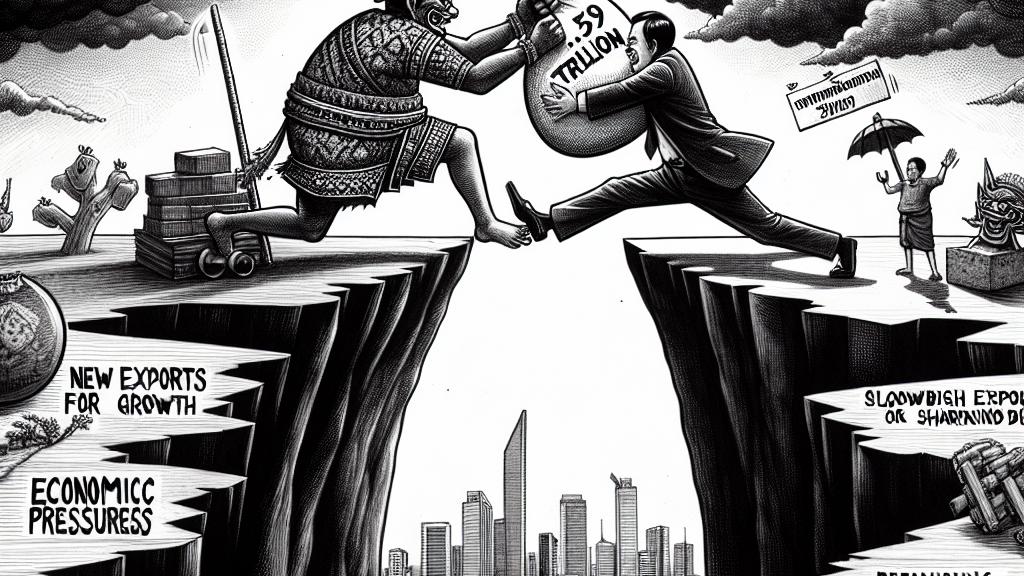Government Borrowing and Its Impact on Thailand's Private Sector
Overview
- Thailand plans to borrow an astonishing B2.6 trillion for the fiscal year 2025.
- Officials confidently assert that this massive borrowing won't stifle private sector fundraising opportunities.
- This financial approach aims to invigorate economic growth amid significant challenges like high household debt.

Government Borrowing Plans
In an ambitious response to ongoing economic pressures, the Thai government is set to proceed with a record-breaking borrowing plan of 2.59 trillion baht for the fiscal year commencing October 1, 2024. This critical initiative aims to increase the national budget to an impressive 3.75 trillion baht, marking a 7% rise from previous fiscal plans. Officials argue that around 1.1 trillion baht will specifically fund new projects aimed at stimulating growth, while the remainder will focus on refinancing existing debts. By taking such steps, they hope to create a strong foundation for economic recovery in a climate characterized by sluggish exports and soaring household debt.
Private Sector Impact
Despite frequent concerns that government borrowing may crowd out private sector investments—a ubiquitous fear within economic circles—ministry officials have put forth a compelling argument that this will not be the case. They detail a well-structured approach that allows government borrowing to complement private fundraising rather than inhibit it. For instance, the financial strategy includes issuing a vibrant mix of bonds, notably about 1.25 trillion baht in sovereign bonds and an additional 520 billion baht in Treasury bills. By diversifying the financial instruments they utilize, authorities aim to attract a broad spectrum of investors, which will foster a competitive yet cooperative investment environment, thus boosting overall economic confidence and expansion.
Economic Outlook and Challenges
Looking ahead, Thailand’s economic forecast glimmers with both opportunities and challenges. While the economy is anticipated to grow by 3.9% in 2023, largely driven by the resurgence of tourism—predicted to see 28.5 million tourist arrivals—projections indicate a potential moderation to 3.4% by 2025. This highlights the delicate balance of depending on tourism as a key growth contributor, which is not without its risks. Challenges such as an aging population, vulnerabilities to climate change, and intensified competition from imports create an intricate web of issues that could hinder sustainable development. Thus, while government borrowing seems poised to deliver an immediate boost, addressing these deeper systemic problems is crucial for the long-term health of Thailand's economy. As the nation forges ahead, aligning government strategies with private sector initiatives will be integral to fostering a resilient and dynamic economic landscape.

Loading...